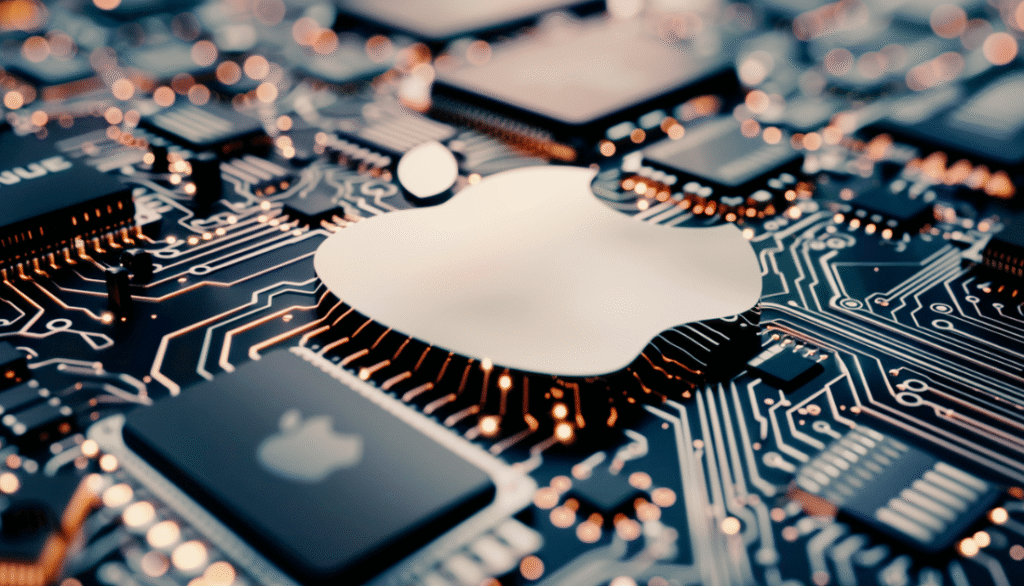Apple is reportedly working on a new generation of custom chips aimed at powering future products such as smart glasses, next-generation Macs, and AI servers, according to Bloomberg’s Mark Gurman.
Highlights
This effort reflects Apple’s strategy of deepening vertical integration while adapting to growing demands in artificial intelligence and next-generation hardware.
One of the most notable developments is a chip specifically designed for smart glasses. Drawing from the low-power architecture of the Apple Watch, the chip is intended to balance energy efficiency with performance—an essential requirement for wearable devices.
Apple is said to be targeting mass production through its long-standing partner TSMC by late 2026 or 2027.
Focus on Smart Glasses with AI Integration
Smart glasses appear to be a significant focus in Apple’s future hardware portfolio. Rather than fully committing to immersive augmented reality at the outset, Apple may initially release AI-powered glasses designed to help users interpret their surroundings using built-in cameras and microphones.
This approach leans toward real-time utility rather than immersive interaction, offering an alternative to Meta’s AR-heavy Ray-Ban smart glasses, which have sold over two million units since launching in 2023.
Developments in Apple’s Chip Roadmap
Two-Track Strategy for Smart Glasses
Apple is reportedly developing two types of smart glasses: one focused on AI-driven functionality without full AR capabilities, and another with more immersive AR support.
The AI-enhanced model is expected to offer context-aware assistance using cameras and audio sensors, positioning it as a utility-first device rather than a mixed-reality experience.
Advanced Micro OLED Displays in Development
In partnership with TSMC, Apple is working on micro OLED displays built directly onto chip wafers. This technology allows for thinner, more power-efficient screens ideal for wearables. The displays are currently in trial production, with potential applications in Apple’s future AR hardware.
Expansion of Custom Modem Capabilities
Apple is also continuing its effort to bring cellular connectivity in-house. A second-generation custom modem, expected by 2026, may support faster speeds and could eventually be integrated into Macs and AR devices.
This could reduce the need for Wi-Fi and enhance mobile functionality across Apple’s product lineup.
In-House Server Chips for AI Processing
To support its AI-powered features, Apple plans to deploy custom chips—similar to its Mac silicon—within its data centers.
These chips would handle intensive AI workloads in the cloud, complementing on-device processing for a more seamless and responsive user experience across platforms.
Strategic Investment in U.S. Chip Production
Apple has indicated plans to source more than 19 billion chips from U.S.-based facilities in 2025, with a significant portion expected to be manufactured at TSMC’s Arizona plant. This move supports both supply chain diversification and the growing trend toward domestic semiconductor production.
Push into AI Infrastructure
The smart glasses processor is reportedly being optimized to manage sensor input, environmental data, and other hardware components while maintaining low power consumption—critical for wearable use cases.
Alongside wearables, Apple’s expanding chip development also includes hardware for AI servers and high-performance Macs, reflecting a broader investment in AI infrastructure.


